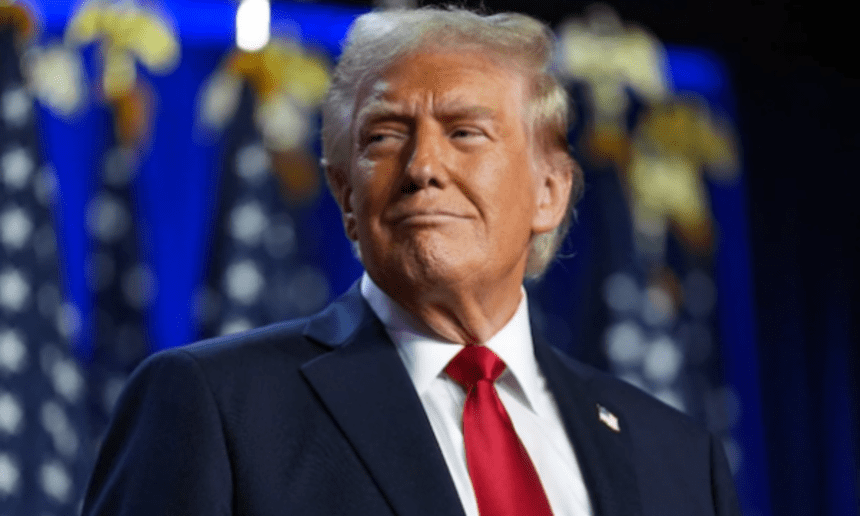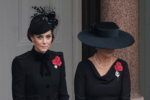The newly elected President of the United States, Donald Trump, is no stranger to the Western Balkans, and the region is also familiar with him. Their histories are intertwined, creating a foundation for an unpredictable relationship going forward.
Trump, a Republican who served as president from 2017 to 2021, won the November 5 election against Democratic candidate Kamala Harris.
“Honestly, this was the biggest political move of all time. There has never been anything like this in this country, and perhaps even beyond,” Trump said on election night.
Kosovo’s President, Vjosa Osmani, and Prime Minister Albin Kurti congratulated him on his victory.
Kurti stated that “the U.S. is an important ally, friend, and partner of Kosovo,” adding that “we eagerly await to work together for progress and peace.”
Prime Minister of Albania, Edi Rama, and other Western Balkans leaders, including Serbian President Aleksandar Vučić, also congratulated him, expressing belief that “Serbia’s voice will now be heard more clearly.”
“With [Trump’s people] we have maintained friendly relations even when they lost the mandate, and now this is a more favorable situation for us,” said Vučić.
Montenegro’s Prime Minister, Milojko Spajić, expressed optimism in a post on X (formerly Twitter), saying “better days” are coming for both the U.S. and Montenegro.
Meanwhile, Milorad Dodik, the President of Republika Srpska, who favors the separation of this entity from the rest of Bosnia, said that Trump’s victory “is our victory too.”
“The previous administration was unjust to us; under Trump, we expect it to be more objective,” said Dodik, who is under U.S. sanctions for jeopardizing the Dayton Peace Agreement.
These reactions were expected, says Vesko Garčević, a professor of International Relations at Boston University. Furthermore, he points out that some Balkan leaders have long been proactive in strengthening their positions and playing a role in shaping U.S. policy toward the region.
“Two countries in the region, Serbia and Albania, have offered their spaces for investments from Trump’s inner circle, hoping that this will help them navigate relations with the Trump administration in the future,” says Garčević to Radio Free Europe’s Expose program.
“Regarding Serbia, they believe this administration will help address the Kosovo issue. Albania, on the other hand, is trying to position itself as one of the pillars – along with Serbia – of the future U.S. approach to the Balkans,” adds Garčević.
Trump’s son-in-law, Jared Kushner, who served as his adviser, plans to build luxury hotels in Albania and Serbia. Trump’s eldest son, Donald Jr., also dined with businessmen in Belgrade this fall to discuss investment opportunities.
Garčević points out that Trump is known for prioritizing U.S. interests through bilateral relationships. “Trump will not align America’s approach with the European Union if he believes that a bilateral approach brings better benefits. He will push things forward, regardless of what the EU thinks,” says Garčević.
David Kanin, a professor of European Studies at Johns Hopkins University in Washington, adds that Trump’s first administration was pro-Serbian, and Serbian officials felt respected by him.
Although emphasizing that Trump is unpredictable, Kanin expects this relationship to continue. “Investments in Albania will be important to him, while populist forces in North Macedonia and Montenegro will align with his demands to maximize their benefits.”
“Losers, as always, are America’s clients: the Bosniaks and the Kosovars. But Trump shouldn’t be blamed solely for this. We’ve been forcing Bosniaks and Kosovars to make concessions to their adversaries for the past 30 years – since the Dayton Agreement,” Kanin says.
Kanin adds that Bosniaks are now “lost and unprotected,” assuming that Trump will remain, as he says, pro-Serbian. He also notes that Bosnian Croats may renew their efforts for a third entity, weakening Bosniaks in the process. Regarding Kosovo, he says that internationally, things have not been going well for Kosovo.
“Albin Kurti may win the elections in Kosovo, but he is very unpopular abroad. Now, he will face the United States, which may be even more inclined to help Vučić with his policies toward Kosovo,” says Kanin.
During Trump’s first administration, Kosovo and Serbia reached an agreement on the normalization of economic relations, but most of its points have remained unimplemented.
There were also officials who spoke about the possibility of territorial exchanges between Kosovo and Serbia – as a potential solution to their disagreements – as well as withdrawing American troops from Kosovo.
Kanin believes that the chances for this idea to resurface are more likely with the new administration.
“Territorial exchanges will not return in the same way as before, because the actors have changed – at least one of them. The agreement was discussed in the context of a reconciliation between [Kosovo’s former President Hashim] Thaçi and Vučić, who trusted each other. The problem now is that there is no cooperation between Kurti and Vučić. Therefore, I believe the agreement between them is unlikely,” says Kanin.
However, Garčević disagrees. He believes the idea of territorial exchanges may quickly reappear on the U.S. agenda.
“I think the U.S. will not want another crisis in the Balkans. It will try to close the crisis in Ukraine, focusing on China and its potential crisis with Taiwan. If we take everything Trump has said during his presidential campaign into account, I think China will take up most of his foreign policy agenda,” says Garčević.
Both interlocutors agree that the challenges for Kosovo will be more pronounced, especially if Richard Grenell takes up the position of U.S. Secretary of State or another senior position in the new Trump administration, as has already been speculated.
In 2020, Kosovo’s Prime Minister, Kurti, accused Grenell, who was the U.S. representative in the Kosovo-Serbia dialogue at the time, of “direct involvement” in the downfall of his government.
Amid internal challenges, the war in Ukraine, and conflicts in the Middle East, some analysts argue that Trump’s new administration may ignore developments in the Balkans, allowing Russia to expand its influence.
One of them is Cody McClain Brown, a professor at the University of Zagreb.
“If Russia tries to exert more influence in Serbia and Montenegro, the situation in Bosnia and Herzegovina could become more unstable. Regarding Kosovo, Trump’s stance will remain uncertain. He may support Serbia in taking back Kosovo, but it’s hard to say, as he doesn’t express strong opinions on this issue,” says Brown.
The European Union, to which all the countries of the Western Balkans aspire for membership, is also bracing for Trump’s return. His officials have congratulated him, but in the past, they have frequently expressed concerns about his foreign policy.
Analysts say that in the coming months, it will become clear whether Trump’s tactics will lead to positive developments in the Western Balkans, increase hostilities, or leave the region simply in a state of stasis. /REL







